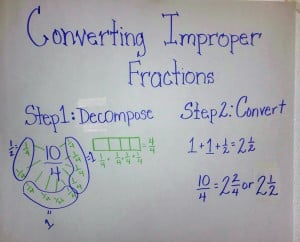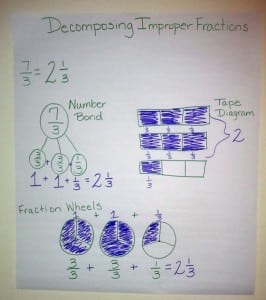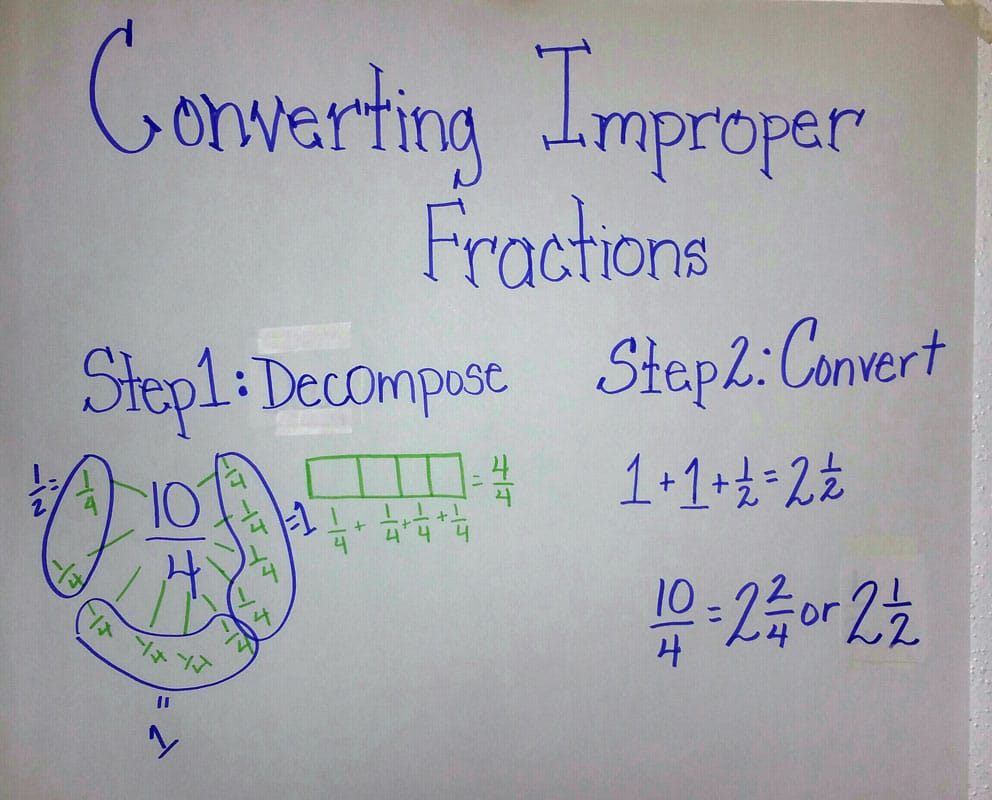I, like many elementary teachers across the nation, have found myself teaching math concepts to 4th and 5th-grade students that were once taught to middle school students. Truth be told, when I first began teaching these skills I must admit I was very skeptical about teaching multiplying fractions and whole numbers to 4th and 5th graders. As I grew more comfortable with the idea that I have to teach my 4th and 5th graders these complex concepts I decided to find ways that made the transition seamless.
 I currently work in Texas but my first encounter with these math new standards took place when I was teaching in Louisiana. I was teaching 4th-grade math at an elementary school in Baton Rouge. As with most inner city schools, my students were behind in math and reading so teaching these new math concepts to these students was going to be a bit of a challenge, however, I decided that I was going to give it my all.
I currently work in Texas but my first encounter with these math new standards took place when I was teaching in Louisiana. I was teaching 4th-grade math at an elementary school in Baton Rouge. As with most inner city schools, my students were behind in math and reading so teaching these new math concepts to these students was going to be a bit of a challenge, however, I decided that I was going to give it my all.
In grades, 3rd-5th the fraction units and concepts are massive and complex. So imagine how I felt teaching new standards to students that didn’t have a good foundation with fraction concepts….it was a recipe for disaster! To make matters worse, I was learning the new Singapore Math strategies along with the students. Around November, I began to teach fractions a boy did the unit have a rough start! Over time, I began to cover more fraction concepts and I became more comfortable with the tape diagram, area model, and decomposing fractions.
Even though I have very good math content knowledge of fractions, I was very fortunate to have The Story of Units (Eureka Math) to guide me with implementing these new fraction instructional strategies in my classroom. At first, I felt like the modules were overwhelming but as began to use the fraction module I began to make so many connections that I was like a kid in a candy store!
My biggest aha! came after I taught decomposing fractions and then began to teach my 4th graders how to convert improper fractions to mixed numbers. When I taught middle school I used to use fraction wheels as my model and division as the algorithm to convert improper fractions to mixed numbers. These strategies were okay for middle school but when you have elementary students that struggle with division and the really don’t understand fraction concepts then those strategies become useless.
Converting improper fractions with the tape diagram and the decomposing strategy went smoothly because the students were already familiar with the decomposing strategy. So when I used decomposing to covert improper fractions to mixed numbers it extended their understanding of how they could decompose fractions instead of using division. It was just absolutely freaking amazing to see how the students could look at an improper fraction and immediately convert it to a mixed number without hesitation!
As a math teacher, I know when I have to teach a skill and my students are not proficient with the prerequisite skills it creates anxiety for me and the students. Finding conceptual alternatives to teaching to my students’ weaknesses has become a life saver because it gives the students the time that they need to master skills like division and multiplication.







Hi Michelle
I like to use diagrams when teaching how to convert between fractions and mixed numbers. Students soon figure out the mental/written method for themselves after a few examples.
Check out my lesson at http://mr-mathematics.com/product/introducing-mixed-numbers/
Thanks
Jonathan
Hi Johnathan the idea behind using decomposing fractions is to give teachers an alternative to converting improper fractions to mixed numbers.
One thing I find troubling about fractions is is the terminology that is used. For example we use “improper” for a fraction written in a/b or fraction form. Sometimes a fraction form fraction is very proper.
Also the word “reduce” is used for writing a fraction in lowest terms. To reduce is to make smaller.
I would avoid using the words “improper” and “reduce” when teaching fractions.
Richard
Hello, I just stumbled upon this blog post as I was looking for all the keywords you have written about. The google algorithm is doing a great job getting it out there. Anyway, I have just begun my fractions unit with Fifth graders who had 1/2 year of learning in 3rd grade due to pandemic and no at home learning as well as hybrid 4th grade. To say they were behind at the beginning of the year is an understatement. I started with all the easier fraction recognition stuff, identifying as more or less than 1/2, and just did decomposition today. They found it fun. Tonight, I am sitting and thinking about how all the decomposition ease could help with mixed and improper… and how I can show it in a way that totally connects for them. Then I found your blog and it was so nice to see that it has been done successfully!!! Thanks for the pictures too! – Becky from NY